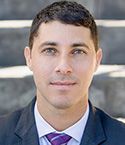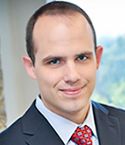commercial-fraud
The unique purpose and role of a special committee in Delaware corporate law has been exhaustively examined by courts.
As a great 2024 comes to a close, we look forward to an exciting 2025. At this year’s Winter Leadership Conference in December, we co-hosted a timely panel with the Ethics and Professional Compensation Committee.
The doctrine of in pari delicto is “[t]he principle that a plaintiff who has participated in wrongdoing may not recover damages resulting from the wrongdoing.” [1] This article seeks to provide a general overview of the in pari delicto doctrine, and the relevant intersections between the doctrine and its exceptions.
We are closing to books on an eventful 2023 and looking forward to a busy 2024. Between the travails of FTX and the numerous lesser frauds, the expertise of our members is in constant demand. This coming year, we plan to host webinars and committee video calls, which will resemble webinars but will be interactive.
The Supreme Court may have expanded the types of debts that are exempt from discharge under § 523 of the Code. In Bartenwerfer v. Buckley [1], the Court held that § 523 bars the discharge of a debt arising from fraud committed by the debtor’s business partner.
The Bankruptcy Code includes nine defenses to a trustee’s ability to avoid a pre-petition transfer as a preference. One of those defenses — codified at 11 U.S.C.
First enacted during the Great Depression, the Perishable Agricultural Commodities Act (PACA)[1] in part sought to protect the suppliers of fruits and vegetables who had been left unpaid when purchasers went bankrupt. The PACA was further strengthened in 1984 when it was amended to include statutory trust protections for unpaid suppliers.
It is been over a year since the unusual involuntary bankruptcy case of In re Scandia Seafood (New York) Inc. was tried on a motion by the assignee in an assignment for the benefit of creditors (ABC) to dismiss, and for sanctions against the petitioning creditors and their counsel.[1] What made the case unusual was that it consisted of an invo
Section 727(b) of the Bankruptcy Code provides for the discharge of debts that arose prior to the petition date.
Pagination
This panel provides an in-depth, dynamic discussion on (1) forensic analyses employed to identify and untangle fraud and maximize recoveries; (2) standing to bring certain claims in fraud cases; (3) claims often pursued in Ponzi and other fraud cases, including aiding and abetting fraud, aiding and abetting breach of fiduciary duty, and conspiracy; (4) the Ponzi scheme presumption, clawback and defenses; and (5) in pari delicto and its applicability, along with other potential defenses.
This session will provide an overview of recent high-profile cases, including those of FTX, Kenneth Chesebro, Rudy Giuliani and Judge David R. Jones, and discuss the ethical issues raised, including the limits of advocacy, responsibility of the profession, duty of candor and truthfulness, prohibition on assisting in criminal activity, and the duty to report professional misconduct.
Ponzi and other fraudulent schemes continue to proliferate. Many of these schemes, event if primarily targeted at Americans, operate using offshore entities in the Caribbean. As a result, resolving such schemes typically involves domestic receiverships or bankruptcy coupled with offshore liquidation proceedings. The victims’ recoveries may vary widely depending on whether the distribution of the scheme’s remaining assets is determined by U.S. bankruptcy law, U.S. common law or foreign law. This panel will explore the various ways in which U.S.
Over the last several years, an increasing number of states, including New York, have adopted the UniformVoidable Transactions Act (UVTA), the latest update to the Uniform Voidable Transfer Act. The UVTA made a number of minor changes and updates to the Uniform Fraudulent Transfer Act (UFTA), including changingthe name. What changes were significant? What opportunities to fix problems/vagaries in the UFTA did the drafters miss? What amendments should the UVTA drafters consider?
Recent large bankruptcies like NRA, Boy Scouts of America, Roman Catholic Archdiocese, Purdue Pharma and J&J have invigorated debate over the longstanding issues of venue and bad faith in bankruptcy. This panel will explore matters surrounding venue and bad-faith filings, related ethics considerations, and the newest wave of reform initiatives.
The webinar panel, comprised of bankruptcy lawyers, a panel bankruptcy trustee and a financial advisor, will delve into what occurs when an individual debtor files bankruptcy and fails to properly disclose their assets. The discussion will include methods of investigating and discovering hidden assets and the means by which a trustee can successfully recover the assets for the bankruptcy estate. The panel will also address defenses that a debtor may raise, including exemptions, tenants by the entirety, or business assets transferred to trusts.
Hosted by the Bankruptcy Litigation and Commercial Fraud Committees. This panel will explore whether and how far U.S. avoidance provisions might apply extraterritorially, and will discuss the challenges and pitfalls of alternate theories of recovery.
This webinar will focus on the criminal bankruptcy fraud provisions of Title 28. The presentation will use examples from well-known bankruptcy fraud cases to illustrate how these laws play out in practice. The presentation will also touch on other criminal statutes (e.g., mail and wire fraud) that are frequently implicated in bankruptcy fraud cases.
This panel hosted by the Commercial Fraud and Secured Credit Committee will take a fresh look at secured creditor rights and unique solvency issues in fraud and Ponzi cases. Learn how to avoid being trumped in federal forfeiture proceedings or paying on bankruptcy clawback claims by treading in the safe harbor of § 546(e) — and learn how to navigate the shoals of receivership.
Guest speaker, James Lodoen, Esq., a partner at Linquist & Vennum, PLLP in Minneapolis, discusses Finn v. Alliance Bank (S. Ct. Minn. 2015), Kelley v. Opportunity Finance, LLC, et al. (In re Petters Company, Inc., et al.) (Bankr. D. Minn. May 31, 2016), and the Ponzi-scheme presumption.
Pagination

Alyson M. Fiedler Esq.
Co-Chair
New York, NYIce Miller LLP
(212) 835-6315

Julia Di Fiore Byrne
Co-Chair
Austin, TXReid Collins & Tsai LLP
(512) 647-6132

Lauren A. Baio
Communications Manager
Washington, DCAdams & Reese
(202) 478-1217

Simon Dickson
Education Director
Camana Bay,Mourant
+13459494123

Morgan Menchaca
Membership Relations Director
Austin, TXReid Collins & Tsai LLP
(512) 647-6100

Nathan Basalyga
Membership Relations Director
New York, NYIce Miller LLP
(212) 824-4964

Samantha Oppenheim
Newsletter Editor
New Orleans, LAJones Walker
(504) 582-8641

Michael Shanahan
Special Projects Leader
Philadelphia, PAAlvarez & Marsal
(610) 715-1313











